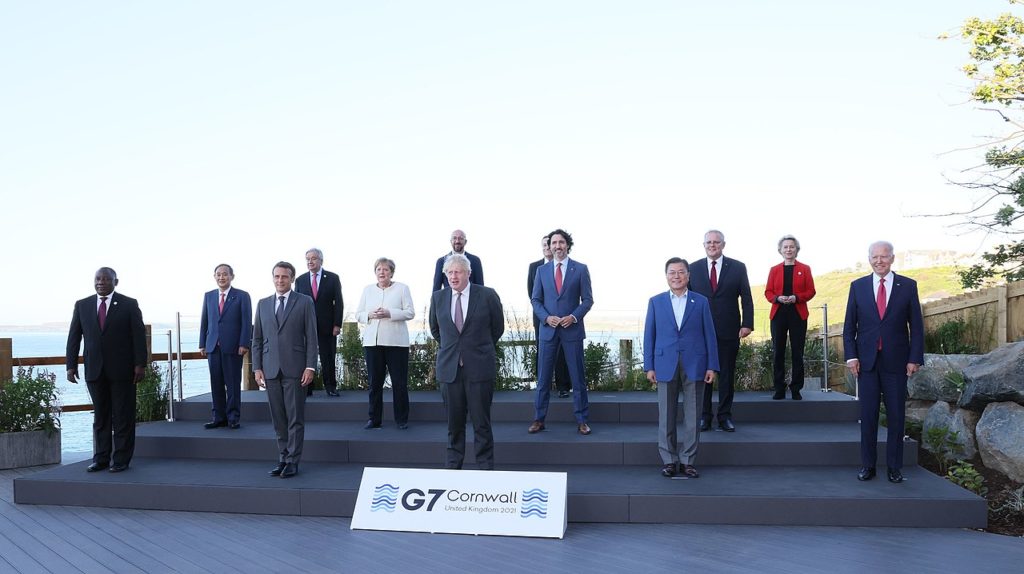The Peninsula
2021 in Review: U.S.-South Korea Multilateral Cooperation

This is the fifth in a 10 part series looking at how the issues identified in KEI’s annual “10 Issues to Watch for on the Korean Peninsula” series developed in 2021. The original “10 Issues” piece can be found here.
The first year of the Biden administration has seen the U.S. return to multilateral frameworks both old and new, such as the G7 and NATO, as well as the Quad Plus and AUKUS. This development was expected as President Joe Biden pledged early on in his term to enhance cooperation with like-minded partners to respond to global challenges. As it concerns the ROK-U.S. alliance, however, commitment to multilateral cooperation has mostly been limited to rhetoric while tangible achievements have been slower to appear.
The Joint Statement following the Moon-Biden summit reaffirmed the importance of multilateral cooperation on a range of issues, from climate change to vaccine cooperation to reforming the WTO. It also highlighted commitment to aligning the U.S. Indo-Pacific strategy with South Korea’s New Southern Policy, although as of yet, cooperation has been mostly limited to bilateral relations.
One notable point was the mentioning of the Quad, specifically, that the two “acknowledge the importance of open, transparent, and inclusive regional multilateralism, including the Quad.” This is indeed significant in that the Moon administration was initially reluctant to be a part of any grouping that could be suggestive of being anti-China. While the language hints at potential cooperation in the Quad Plus framework, especially on areas of non-traditional security, formal participation appears unlikely in the near future.
At the global level, South Korea had the opportunity to attend the G7 Summit as one of four observer countries. There, President Moon emphasised South Korea’s contribution to COVID-19 vaccines as well as post-pandemic economic recovery. Along with such opportunities, there will be increased expectations for accountability, such as following through its pledges, and expectations for South Korea to shoulder greater responsibility, working alongside other countries on more sensitive issues such as addressing tensions caused by China’s rise.
Looking ahead, the following year will see greater build-up of U.S.-led multilateralism. The coming together of institutions such as the Quad, Five Eyes, AUKUS, D10 and the Economic Prosperity Network will transform the profile of multilateralism, intersecting regions as well as both security and economic agendas. How and to what extent ROK-U.S. cooperation can add to these various frameworks will be determined in the next administration. A crucial test for South Korea will be to look far and wide in terms of what its contribution can be, and not be limited to the Korean Peninsula or the North Korea problem.
Saeme Kim is a KF Indo-Pacific Programme Visiting Fellow at the Royal United Services Institute. The views expressed here are the author’s alone.
Photo from Wikimedia Commons via the Government of Japan.
